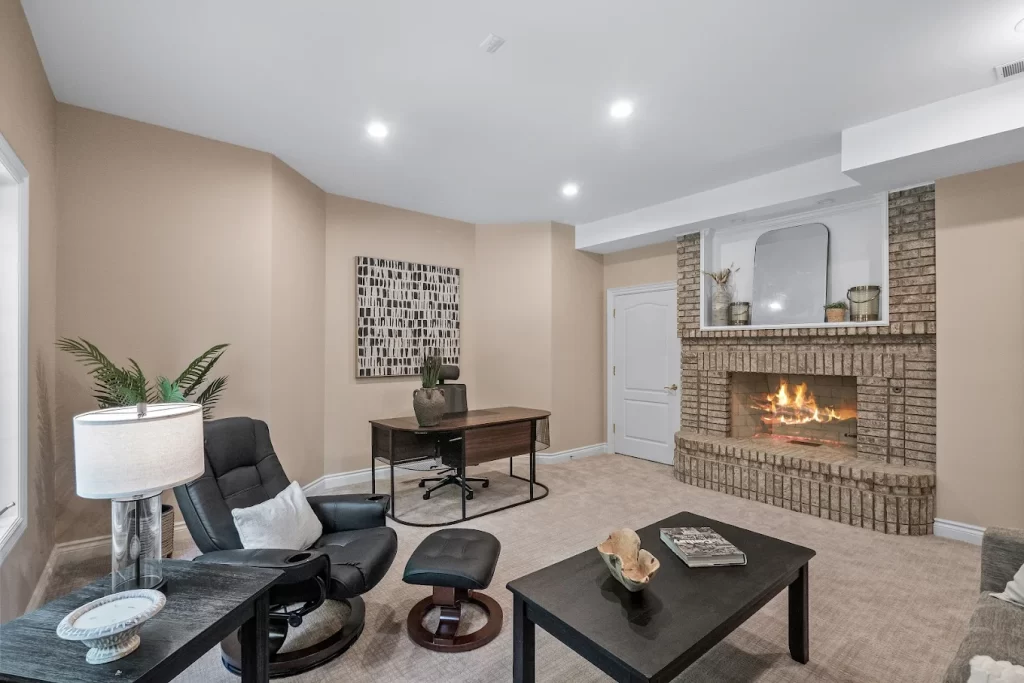Liberty House Recovery Center
Liberty House Recovery Center is a Joint Commission–accredited, state-licensed detox and residential program on a secluded 34-acre campus in Fenton, Michigan. The center combines evidence-based care with luxury amenities and a small-census, high staff-to-client ratio to personalize treatment. Clients receive medically supervised detox, dual-diagnosis care, and a structured residential program supported by CBT/DBT, relapse-prevention training,…
Rushton Recovery
Rushton Recovery offers a boutique, luxury residential treatment environment on a private 30-acre campus in South Lyon, Michigan, blending high-quality care with upscale amenities. Their small-census model and individualized treatment plans set them apart in the addiction-recovery space. The facility emphasizes whole-person healing—addressing substance use disorders alongside co-occurring mental-health challenges—in a setting designed for comfort,…
Why Trust ExecutiveRehabs
Since 2003, our expert team has built comprehensive resources on executive rehab centers that you can trust to find the right treatment for you.
Transparency and accuracy matter, and we believe you deserve nothing short of the best possible experience when reaching out for support.
FAQs Regarding Michigan Executive Treatment Centers
The Landscape for Executive Addiction Treatment in Michigan
Executives across Michigan face a combination of industry pressures, public visibility, and risk exposure that can make both addiction and recovery more complex than for the general population.
The state’s economy leans heavily on sectors such as automotive manufacturing, advanced engineering, healthcare, and technology. These roles often demand long hours, rapid decision-making, extensive travel, and the ability to operate under constant scrutiny.
Over time, these factors may contribute to burnout, anxiety, and dependence on substances to cope with performance expectations.
What Executive Rehab Involves
Executive rehab is a specialized model of care that prioritizes privacy, individualized treatment planning, and accommodations for ongoing professional responsibilities.
Rather than standard inpatient treatment, these programs typically offer private rooms, secure communication protocols, and clinicians experienced with high-performing individuals.
The goal is to balance intensive therapeutic work with the realities of leadership roles, where sudden absence can have operational or reputational consequences.
Although Michigan has a substantial behavioral-health infrastructure, the number of programs with truly executive-specific tracks is limited.
Most facilities are designed for the general population, and while many deliver excellent clinical care, they may not have the structure, privacy safeguards, or tailored dual-diagnosis expertise that executives often need.
How Michigan’s Landscape Shapes Executive Options
Michigan’s treatment ecosystem contains strengths and limitations for executives:
-
A large statewide network of licensed treatment facilities provides access to detox, residential, PHP, IOP, and outpatient services.
-
Proximity to home may make treatment more manageable for executives with families or local business commitments.
-
Some Michigan programs offer secluded campuses or low-density environments that support confidentiality.
However, challenges persist:
-
Executive-dedicated programs are fewer in number compared with major national treatment hubs.
-
Local professional networks can feel close-knit, increasing fears about confidentiality or recognition during treatment.
-
Insurance coverage for higher-acuity or executive-oriented services may be inconsistent.
For executives who require flexible scheduling, discreet entry and exit points, or regular communication with their teams, these gaps can influence the decision to seek treatment within or outside the state.
Why Some Executives Seek Treatment Outside Michigan
Despite local options, many Michigan executives ultimately seek out-of-state programs to achieve greater anonymity or access to more comprehensive luxury-level services.
Traveling allows a degree of separation from work environments, local acquaintances, and industry circles. This physical distance can help executives immerse more fully in treatment without the distractions or stressors of home.
States such as Florida, California, Colorado, and Arizona offer larger clusters of programs with established executive tracks.
These facilities often provide privacy protections, resort-like accommodations, wellness amenities, and multidisciplinary teams accustomed to treating high-level professionals.
They may also attract peer cohorts of other executives, physicians, attorneys, or entrepreneurs, which can make treatment feel less isolating and more relevant.
Considerations for Michigan Executives Choosing a Program
Whether selecting a Michigan provider or a destination program, executives should pay close attention to areas that influence quality and long-term success:
-
Accreditation and credentialing: Clear licensure, medical oversight, and adherence to evidence-based practices.
-
Dual-diagnosis integration: Capacity to treat co-occurring anxiety, depression, trauma, or burnout.
-
Confidentiality: Private rooms, secure technology policies, discreet facility design.
-
Work accommodation: Structured guidelines on technology use and communication.
-
Aftercare and reintegration: Support for returning to demanding roles, with relapse-prevention plans tailored to leadership environments.
Executives may also want to understand how each program evaluates readiness to resume work.
Some programs encourage gradual reintegration through telehealth or week-by-week monitoring, while others recommend more complete disengagement during early recovery.
Get Support for Placement at Top Programs in Michigan or Nationwide
Michigan offers meaningful options for executive addiction treatment, particularly for those who value proximity to home or require partial work continuity.
At the same time, the state’s limited number of true executive or luxury-focused programs means many professionals still explore out-of-state choices for greater anonymity or specialized amenities.
By evaluating clinical sophistication, privacy protections, and individualized care, executives can choose a treatment pathway that aligns with both their personal recovery goals and their professional responsibilities.
Our expert team at ExecutiveRehabs.com has helped thousands of executives find treatment over two decades. Please do not hesitate to reach out confidentially for our support to get bespoke treatment options specific to your goals and situation.
Sources & Citations
Substance Abuse and Mental Health Services Administration (SAMHSA). “Michigan (MI) State Profile.” https://www.samhsa.gov/data/report/michigan-mi
Substance Abuse and Mental Health Services Administration (SAMHSA). “2020 National Survey of Substance Abuse Treatment Services (N-SSATS) State Profiles.” https://www.samhsa.gov/data/sites/default/files/reports/rpt35969/2020%20NSSATS%20State%20Profiles_FINAL.pdf
Michigan Department of Health and Human Services. “Drug Control, Substance Abuse, and Problem Gambling Reports & Data.” https://www.michigan.gov/mdhhs/keep-mi-healthy/mentalhealth/drugcontrol/reportstats
Michigan Department of Health and Human Services. “Michigan receiving more than $109 million to address overdose crisis.” https://www.michigan.gov/mdhhs/inside-mdhhs/newsroom/2024/10/16/samhsa-grant
Substance Abuse and Mental Health Services Administration (SAMHSA). “2021 National Survey on Drug Use and Health.” https://www.samhsa.gov/data/sites/default/files/reports/rpt39443/2021NSDUHFFRRev010323.pdf


